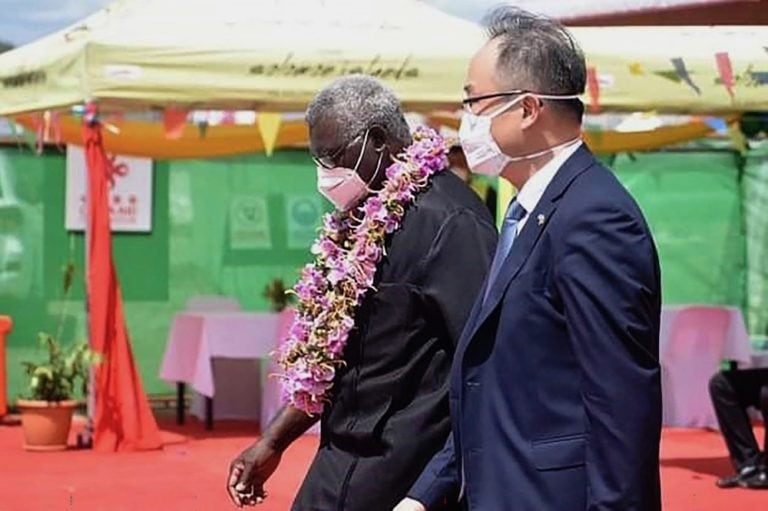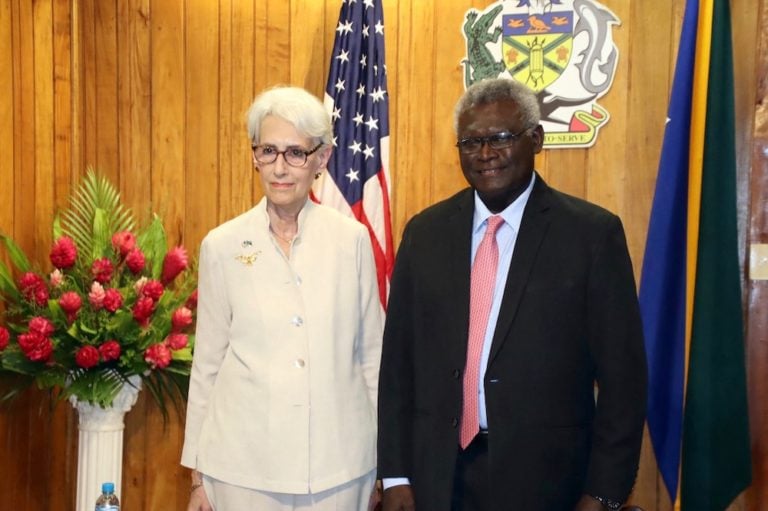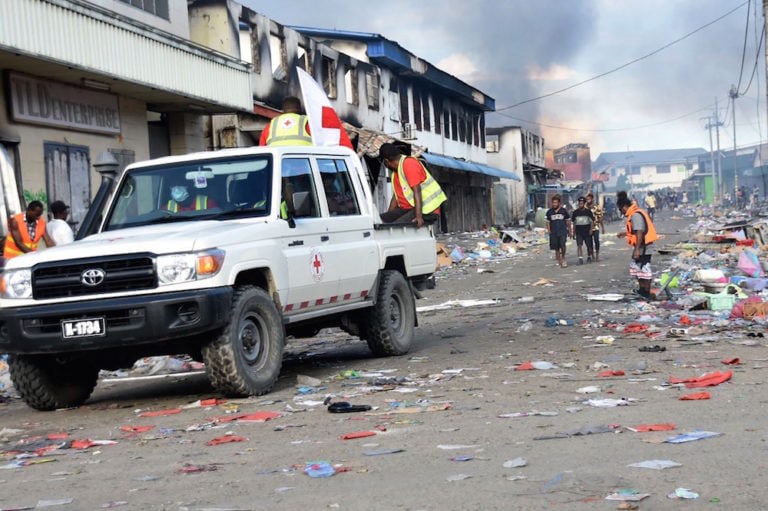(PINA/IFEX) – Foreign journalists covering ethnic conflict in the Solomon Islands have been warned they could be jailed, fined or banned under state of emergency regulations, the regional news agency Pacnews reported on 2 July 1999. Minister of State in the Prime Minister’s Office Alfred Sasako was quoted as saying the government is considering banning […]
(PINA/IFEX) – Foreign journalists covering ethnic conflict in the Solomon
Islands have been warned they could be jailed, fined or banned under state
of emergency regulations, the regional news agency Pacnews reported on 2
July 1999. Minister of State in the Prime Minister’s Office Alfred Sasako
was quoted as saying the government is considering banning foreign
journalists, whose recent reporting of the unrest is seen as unfair and
could further incite unrest. Sasako said any foreign journalist breaking the
rules under the state of emergency faces either expulsion or a fine and
imprisonment.
**Updates IFEX alerts of 2 July, 30 June and 3 February 1999**
Pacnews also reported that under the new media restrictions the national
broadcaster, Solomon Islands Broadcasting Corporation, was asked by the
prime minister’s office to temporarily refrain from reporting details of a
peace accord. Sasako said any reporting of details of the peace agreement
could have jeopardised a meeting between the militants, the Commonwealth
Envoy, former Fiji prime minister Sitiveni Rabuka, and government ministers.
Background Information
On 28 June 1999, the Solomon Islands Government introduced emergency powers
restricting media reporting amidst an ethnic conflict which has led to the
declaration of a state of emergency. In response, Solomon Islands
Broadcasting Corporation stopped rebroadcasting live news bulletins from
Radio Australia and the British Broadcasting Corporation in case they
breached the restrictions. This overseas news is now being
taped and rebroadcast after being checked.
Those convicted of breaching the emergency restrictions can be jailed for up
to two years and fined up to $Solomons 5,000 (approx. US$1,035). The
restrictions forbid printing, broadcasting or communicating information
which incites violence or is likely to cause racial or communal disharmony.
They also forbid printing, broadcasting or communicating information
“prejudicial” to the safety or interests of the state, or
likely to cause “disaffection” with the government, or “hatred of contempt”
for the administration of justice or national security. The powers also
restrict the printing, broadcasting or communicating of information from
official documents.
The state of emergency follows growing ethnic conflict on the island of
Guadalcanal, where Honiara, the Solomons Islands capital, is located. A
Guadalcanal militant movement is trying to drive out people who come from
another major island, Malaita. The movement is claiming that Malaitans
dominate government and business and are increasingly occupying the lands of
the Guadalcanal people. Thousands of Malaitans have fled back to Malaita
following a series of attacks by the militants. Honiara became
the capital of the then British Solomon Islands after Word War Two. It grew
from a base and port built by United States forces during the battle to
retake the Solomon Islands from the Japanese.


